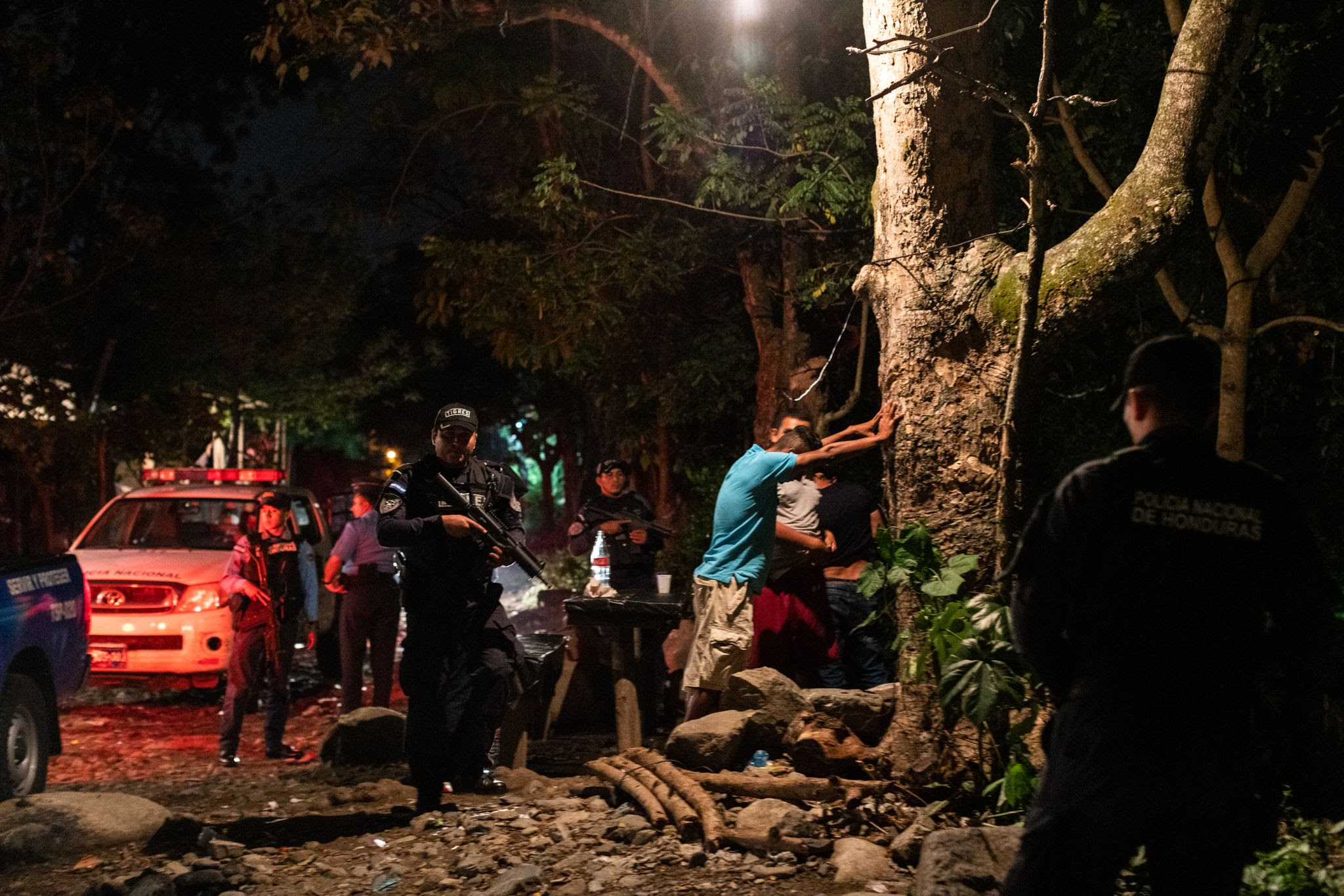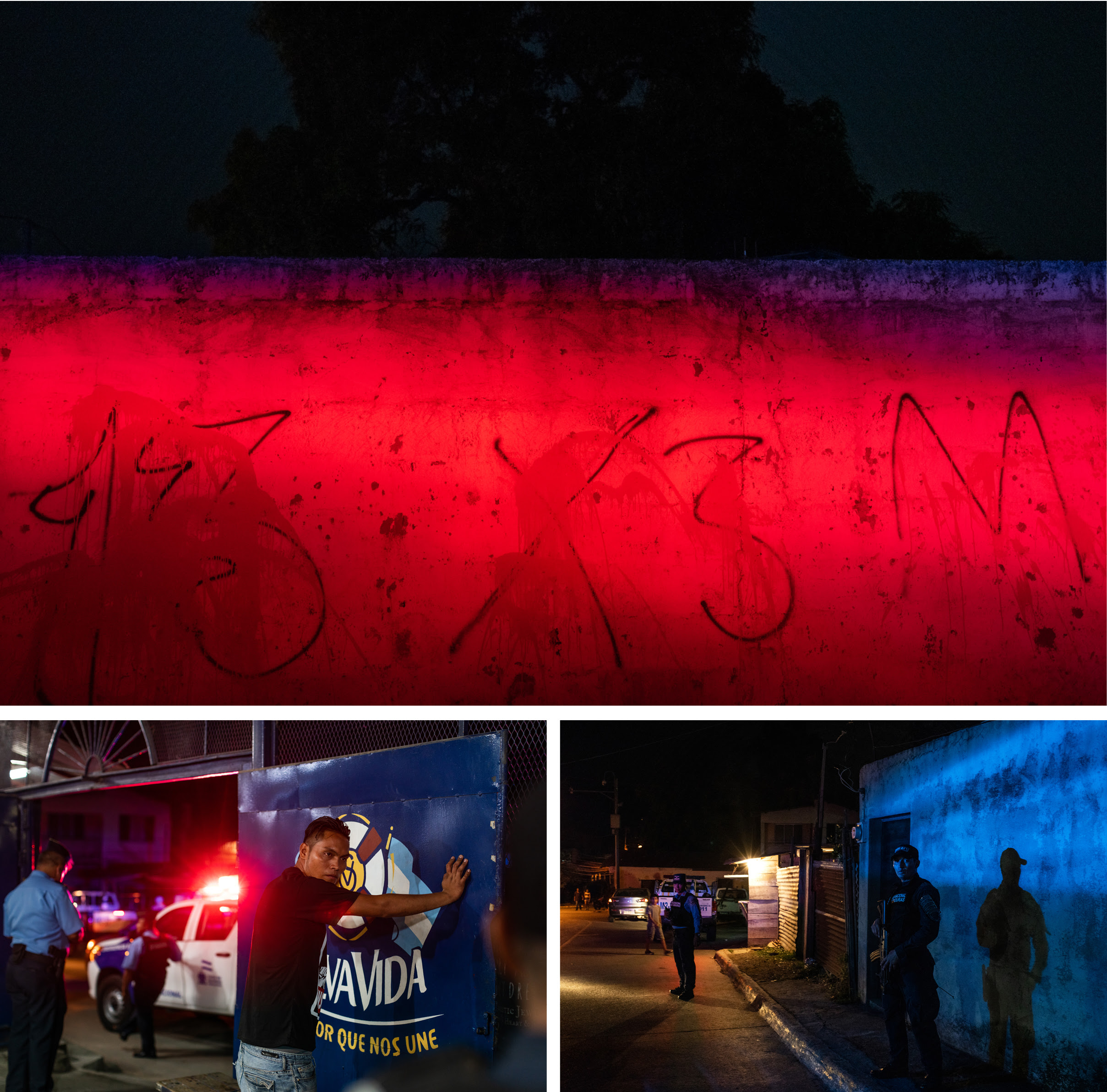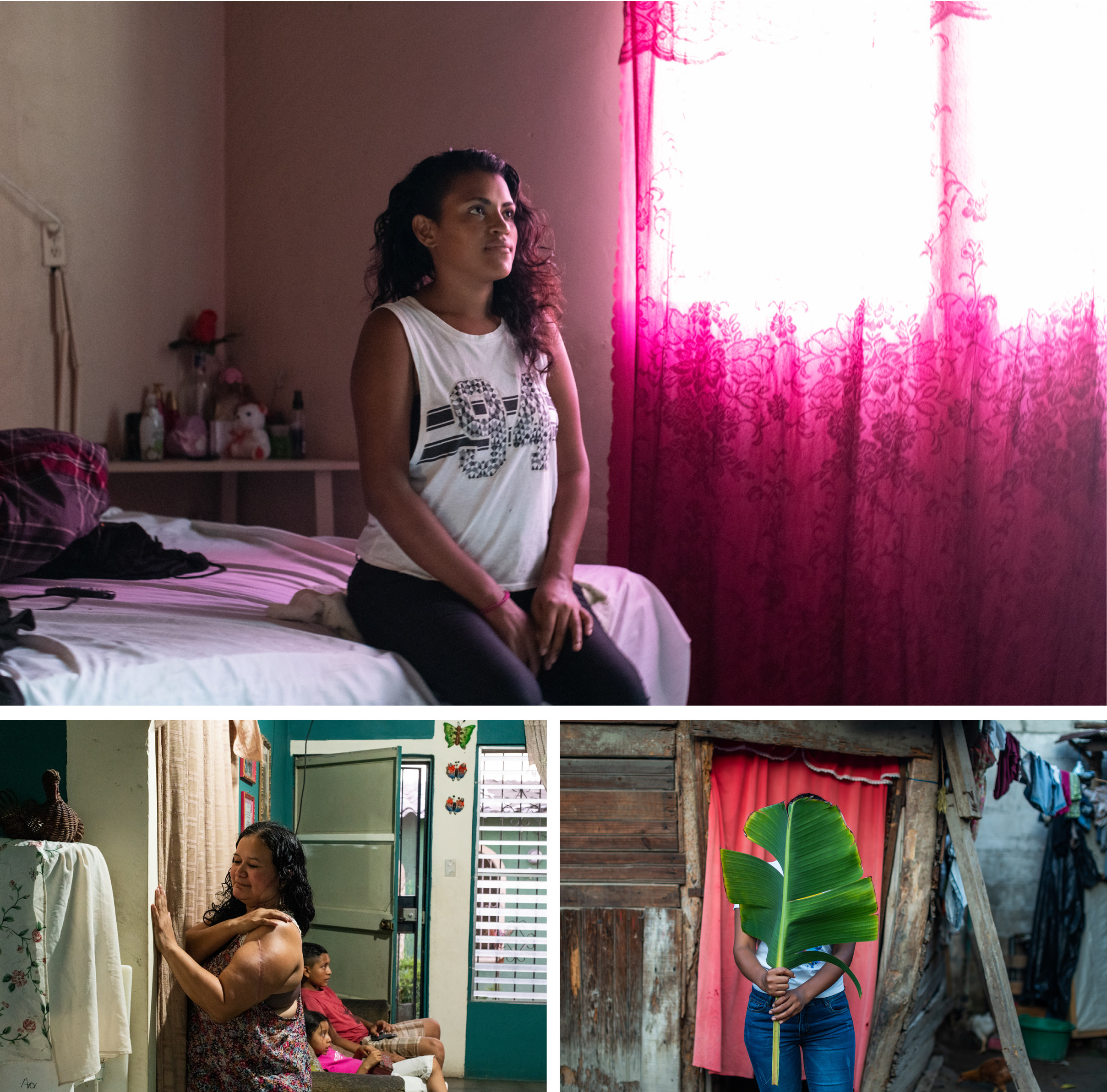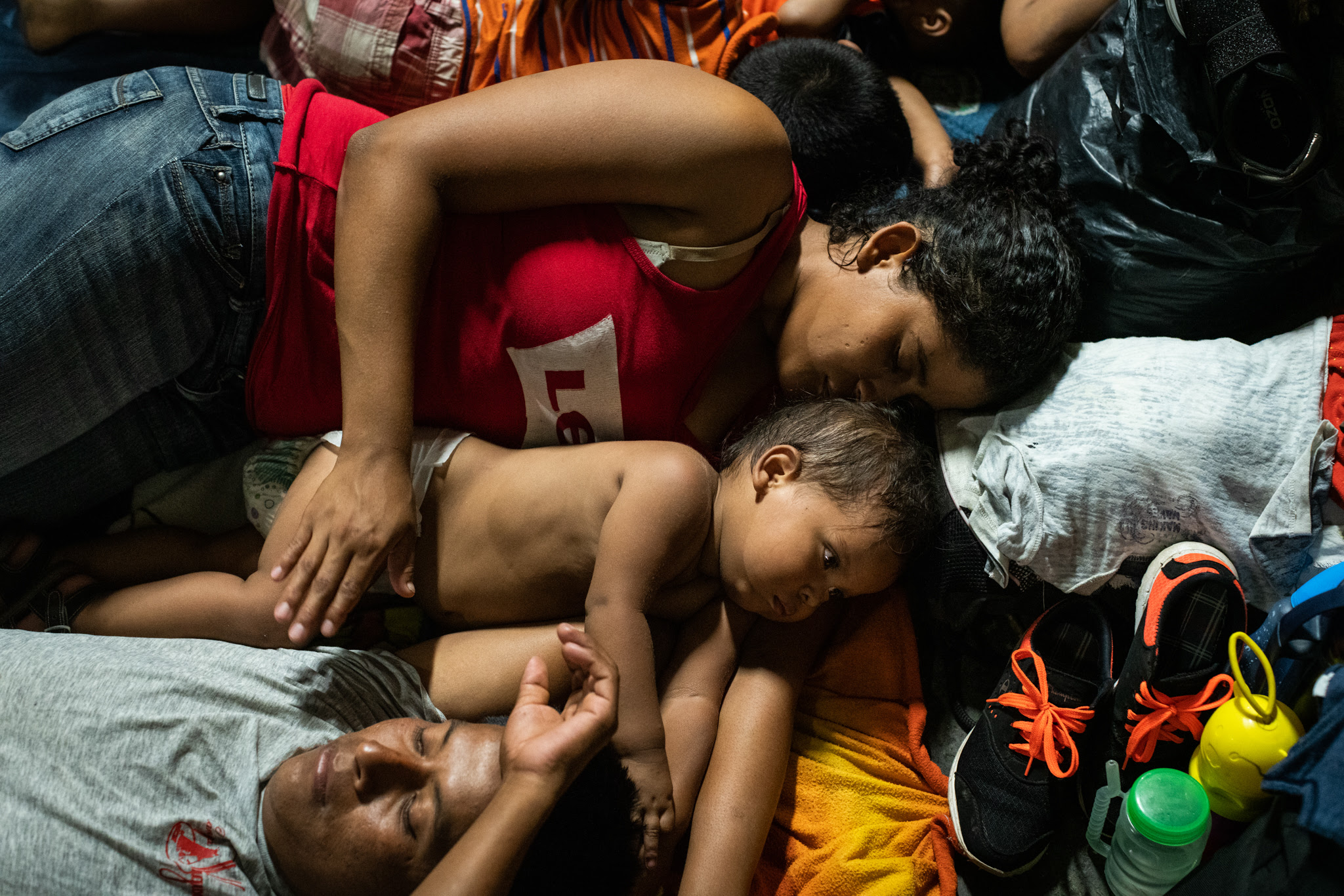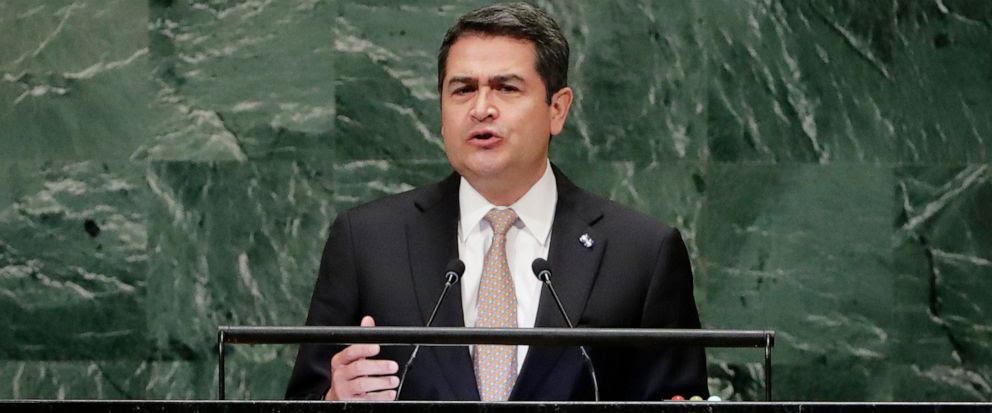Ashamed to be Canadian: Corruption, Fear, Humiliation and Militarization in Honduras
by Janet Spring, mother-in-law of Honduran political prisoner Edwin Espinal
[View in browser: https://mailchi.mp/rightsaction/ashamed-to-be-canadian-corruption-fear-humiliation-and-militarization-in-honduras]
Day #491 – Edwin Espinal, political prisoner illegally jailed in max-security Honduran military prison. Edwin is married to Karen Spring, Canadian human rights defender and director of Honduras Solidarity Network. Since January 19, 2018, Edwin has been illegally held in a max-security military jail, facing trumped up charges filed by the corrupt, repressive U.S. and Canadian-backed Honduran regime.
*******
Ashamed to be Canadian: Corruption, Fear, Humiliation, and Militarization in Honduras
By Janet Spring (mother-in-law of Edwin Espinal, political prisoner in Honduras), May 26, 2019
I am writing this article as I sit by the Caribbean Sea in the evening of May 26 in Trujillo Bay, Honduras. Trujillo is a Garifuna community that is in a land struggle against the Honduran government and Canadian tourism businesses that are trying to or have already stolen Garifuna land for economic gain.
As I visit this community, I am embarrassed and ashamed to be Canadian as corrupt Canadian investors have given Canada a bad name.
I am traveling with 16 people – 4 Canadians from the broader Simcoe County area (Ontario), and 12 US citizens – on a delegation sponsored by the Honduras Solidarity Network and Cross Border Network, based in Kansas City, Missouri. The delegation is focusing on the ‘Roots of Migration,’ which is taking us along the north coast of Honduras to La Ceiba and Trujillo.
“Little Canada” tourism corruption and violence
The cruise ship docks are located here; tourists disembark and enter these communities, and most do not know that they are on disputed indigenous Garifuna territory and that tensions are high. Little do they know that corruption abounds here and that it is perpetuated by Canadian business interests supported by the corrupt narco-trafficking illegal government of Juan Orlando Hernandez.
The delegation began on May 25th with our first stop in El Progeso. Here we participated in a march in support of political prisoners and walked through the streets with the leaders of the movement that demand Hernandez resign. We also met with a member of the El Progreso community who provides support to families who choose to join migrant caravans to the US.
The presenter explained how the deep-seated corruption, extortion, drug cartels, lack of employment, fear, and marginalization forces the Honduran people to leave their country. He remarked that 48% of 5th and 6th grade students wish to leave the country due to the lack of hope perpetuated by the corrupt oligarchy families and drug-trafficking government that control the population.
Our group left with a greater understanding of why people leave the country that they love and the desperation migrant families feel for their children’s future.
This coming week, our group leaves the north coast and travels back to El Progreso, the site of the 1952 banana plantation struggles, to La Esperanza, home of Berta Caceres (assassinated March 2, 2016), and finally to the capital of Tegucigalpa. We will meet with the US Embassy staff and have also requested a meeting with the Canadian Embassy. The group will participate in a dialogue with a very well respected former presidential candidate – Carlos Reyes – who will provide a perspective of the current political situation, listen to the struggles that Hondurans face through corruption at all levels of the Hernandez government, and about gang violence and drug trafficking.
Later in the week, our group will travel to La Tolva prison, hoping to get in to see my son-in-law Edwin Espinal and another political prisoner Raul Alvarez. We have sent in all documentation required for this visit but as the government does not follow their own laws, we may be denied entry.
My visit to La Tolva military prison
This past week before the delegation began, I went to La Tolva prison to visit Edwin. When I traveled to La Tolva for my first scheduled visit on a ‘visitor pass,’ the visit was horrendous on many levels. Firstly, it took two trips to La Tolva to present my documentation that I received from the National Penitentiary Institute (NPI). Each time I travel to Honduras, I must go through this process. We handed the documentation to the prison both on Friday the 17th and then when the guards at the gate asked for further documentation – my flight information, something that was never requested by the prison – Karen drove the extra documents to La Tolva on Saturday the 18th.
When we arrived (Karen was the driver), the officers at the gate said that no papers had been submitted. The director of the prison finally came out and the papers were eventually found. But this took over an hour and a half, minimizing my visitation time. I was expected to get 4 hours. (We got there at 1 p.m. because if you go any earlier, they will not process anyone after 11 am due to upcoming lunch break, and any earlier they just make visitors wait anyway until 1 p.m.)
This kind of delay tactic is a prime example of how the prison officials humiliate visitors in an attempt to discourage them from returning.
In a discussion that Karen had with the officials at the NPI the next day, they advised her that the guards and the director of La Tolva do not have the authority to question any documentation after the permission is granted by the NPI. The permission is signed by the director of the NPI so it must be accepted. They are not supposed to request any further documentation after it has been processed yet more and more this documentation is questioned. Yet the guards do not follow the rules and make their own rules up as they please.
The visit got worse after I finally cleared the front gate. Because I could not speak Spanish, the guards laughed and made fun of me and were very disrespectful to me. The guards at the third checkpoint where the body scanner area is located, refused to accept my doctor’s note because it did not have a doctor’s stamp on it. After repeatedly telling them that our Canadian doctors do not use ‘stamps’, the guard in charge said that I could not enter without the scan.
When I got upset, they mocked me further. This was a very humiliating experience. I therefore had no choice … they had already picked and poked through the food that I had made for Edwin, cut the fruit open with a dirty prison knife, pawed the bread, and even disallowed one of the items that is on the list of ‘approved foodstuffs’ to bring in. I went through the scanner against the recommendation of my family doctor.
After I went through the body scanner, which my doctor deems is very detrimental to my health condition, I had to wait another hour before I could see Edwin. Edwin finally came out at 3:30 so my visit only lasted for 30 minutes. The ridiculing and laughing behind my back continued throughout the whole visit, even when I was leaving the front gate.
Not only were my rights violated according to Honduran ‘law,’ Edwin was very depressed; he has lost more weight, has a constant buzzing in his ear where hearing loss has occurred due to lack of medical treatment, and the water had been shut off for two days. Edwin explained that there was NO drinking water, no water to flush the cell toilets, and no water to properly prepare food. He said that this situation was desperate.
Due to this inhumane, horrific, and degrading treatment I endured as a Canadian citizen by the FNCCP (a new special prison task force recently implemented by the Hernandez government), the military police and the military (three forces in La Tolva which participated in that day’s humiliation), which is excessive only to terrorize and harass, I sent this information to the Canadian Embassy in Tegucigalpa, and requested that someone from the Embassy accompany me on my next prison visit. I did not feel safe and felt very vulnerable, and frightened that during the next visit, the taunting and humiliation would escalate.
Canadian government support for illegal, illegitimate government of Honduras
The Canadian government supports this illegal and illegitimate government of Honduras and its agencies, as well as funds programs related to the prison situations throughout the country through CONAPREV, so I requested this accompaniment. Yet my request was denied. In a second letter, I apprised the Canadian Embassy of the dire water situation in La Tolva prison. I have not yet received a reply.
Edwin and Raul’s appeal cases are in limbo, shuffled from court to court only for the sole purpose of delaying them. Yet if their cases do come to trial and the appeals are heard and accepted, we must be prepared to pay for their bail, which may cost up to $20,000 USD.
Fund-raising campaign
A Go Fund Me campaign has been launched to raise these needed funds. So far to date, one quarter of the money has been raised in less than four days. If you wish to donate to Edwin and Raul’s campaign or find further information on the cause, please refer to the following: www.gofundme.com/politicalprisonershn
The Simcoe County Honduras Rights Monitor and the Spring family thank all of those who support our cause and send their best wishes. We hope for success in Edwin and Raul’s case soon.
From Honduras,
Janet Spring and the Simcoe County Honduras Rights Monitor
